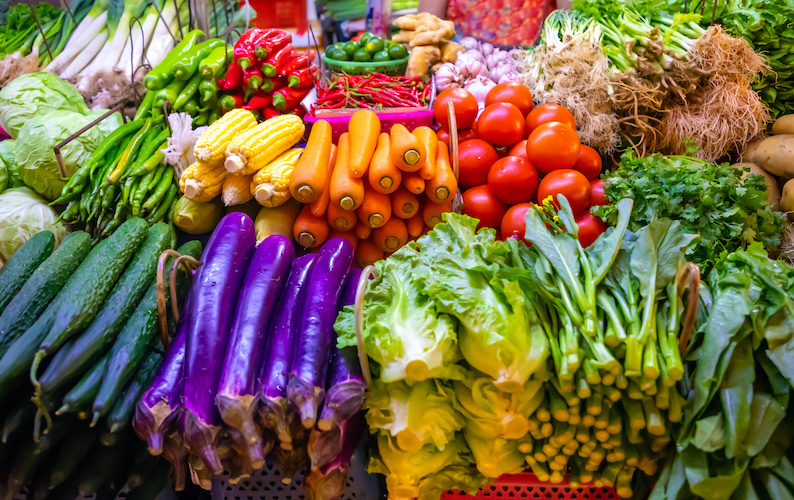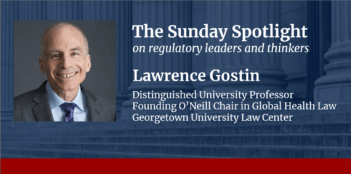
State and local governments should embrace farmers market managers’ input on food regulation during the pandemic.
What do the managers of farmers markets and the governors of states have in common?
As they grapple with the coronavirus pandemic, farmers market managers and governors around the country have to push back against unrealistic demands. Both must transform limited resources into economic and social health, and both must balance strong rules with principles that support creative responses to these demanding circumstances.
Both also must ensure that government and private sector actors collaborate to ensure that the public receives needed food supplies in a safe manner. Farmers market managers are deftly navigating the changing landscape between vendors and consumers amid COVID-19, finding ways to preserve the essential elements of farmers markets that in turn help promote a healthier society. What these managers need are government regulators who will work with them and give them consistent guidelines so they can re-open their markets with a prudent and cautious plan.
For generations, farmers markets have contributed to their communities. They have promoted individual and public health, served as conduits for information and healthy food, offered opportunities for exercise and social life, and provided learning opportunities for immigrants and other sectors of communities.
The “drive-thru” farmers markets and online marketplaces that have emerged in recent months display managers’ creative efforts to fulfill economic and food security even during a pandemic. Although these alternatives are innovative, they do not fulfill the educational, social, and political reasons that consumers give for visiting markets. These newer organizational models and technological tools are stop-gaps.
Alternatives such as drive-thru markets will need to play a role post-COVID, but waiting in traffic lines at familiar places leaves people longing for the market interactions they used to have at traditional farmers markets. Market managers recognize that their markets are more than economic opportunities, so they wait for public health guidelines they can follow to design locally relevant responses to the United States’ rapidly changing circumstances. Government should harness and respond to that creativity.
The way for government to start to developing creative and effective public health policy would be to recognize the principles on which farmers markets operate. First, they connect locally produced crafts and foods with consumers. Second, they are places where consumers practice community. Finally, they convey information and opportunities that people will discover and make their own.
These basic principles are best realized in creative market management practices that permit managers to pivot swiftly in response to emergency situations. Market managers do not have to rethink their business model, reimagine their organizational practices, or rebuild complex supply chains.
On the contrary, managers are ready to engage government in formulating realistic expectations for their marketplaces. If government responds to this interest, managers can then communicate expectations to vendors and visitors who will help produce a market that minimizes risk while providing local products, practicing community building, and facilitating opportunities for learning.
Government agencies, though, need to formulate effective guidelines for markets to operate. Ideally, those rules should be simple and few, and they should follow from dialogue with managers and other agencies to formulate basic guidelines and avoid producing contradictory and unenforceable rules, respectively.
In Wisconsin, for example, the state’s Department of Agriculture Trade and Consumer Protection produced an eight-point list of rules that farmers markets must follow during the COVID-19 pandemic. Meanwhile, the Wisconsin Department of Health Services produced a four-point list—which has since disappeared from the internet—that contradicted the eight-point list. Between May 1 and mid-June, however, the University of Wisconsin-Madison Division of Extension reconciled the two lists with a third set of instructions.
Although these lists recognize that farmers markets in Wisconsin provide essential services, none of the three lists championed or endorsed farmers market managers’ experimentation with and sharing of strategies to meet public health expectations. The United States needs market manager-government partnerships that creatively apply market principles and respond to public health demands.
The COVID-19 crisis—which has led to food scarcity for many families—reveals how essential farmers markets have been for local producers and consumers alike. Farmers markets, along with other forms of community-supported farms, play a critical role in our increasingly vulnerable food system.
State and local government officials need to understand how market creativity serves public purposes—namely, increasing health and wellness. For this reason, government regulators should try to release—not stymie through dense, contradictory standards—the creativity of market managers. Market managers are best positioned to work with consumers and vendors to optimize the mix of healthy economic activity, learning, and social activities that are inclusive and safe—even during a pandemic.




